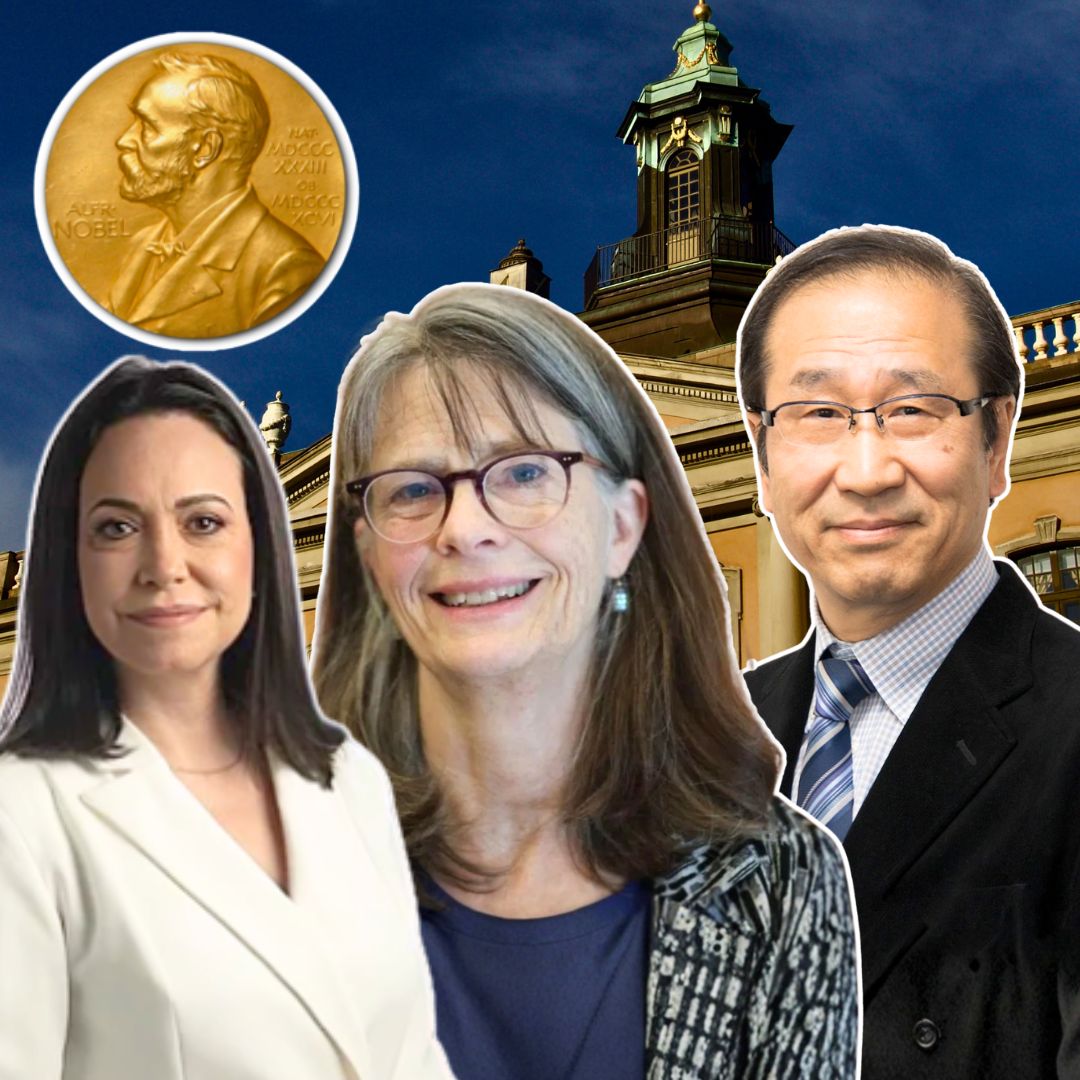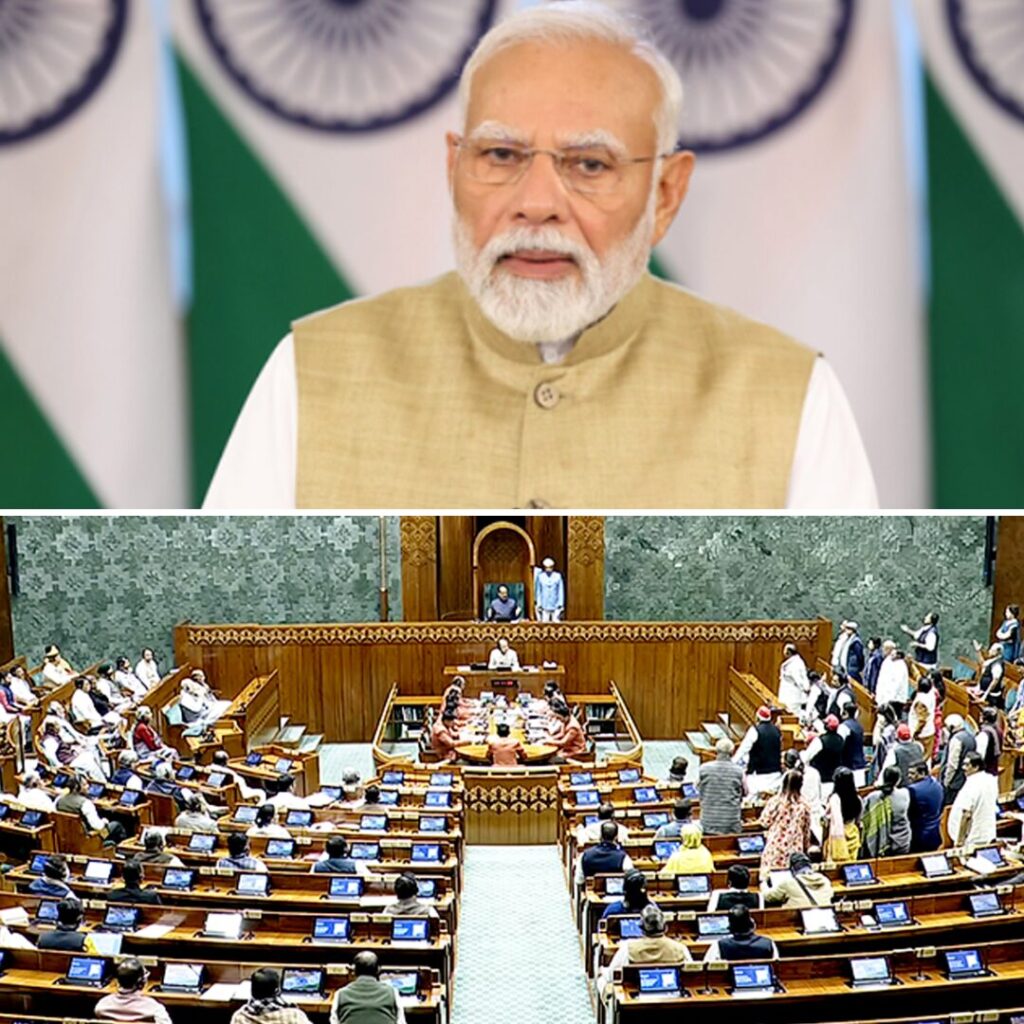The Nobel Prizes 2025 were announced from 6 to 13 October, honouring groundbreaking achievements across six categories. Mary E. Brunkow, Fred Ramsdell, and Shimon Sakaguchi won in Physiology or Medicine for discoveries on immune tolerance.
John Clarke, Michel H. Devoret, and John M. Martinis were awarded in Physics for quantum breakthroughs in electric circuits. Susumu Kitagawa, Richard Robson, and Omar M. Yaghi received the Chemistry prize for developing metal–organic frameworks.
László Krasznahorkai was named Literature laureate for his visionary writing, while Maria Corina Machado won the Peace Prize for her democratic advocacy in Venezuela. The Economic Sciences winner will be announced on 13 October. The awards reaffirm global commitment to science, peace, and human progress.
Scroll down to know the complete list of winners across all categories.
2025 Nobel Prize Winners Complete List
The 2025 Nobel Prizes celebrate transformative contributions across disciplines:
- Physiology or Medicine: Awarded to Mary E. Brunkow, Fred Ramsdell, and Shimon Sakaguchi for their discoveries concerning peripheral immune tolerance, which prevent the immune system from attacking the body’s own tissues. Their work has opened new pathways for treating autoimmune diseases and cancer immunotherapies.
- Physics: John Clarke, Michel H. Devoret, and John M. Martinis were honoured “for the discovery of macroscopic quantum mechanical tunnelling and energy quantisation in an electric circuit.” Their research bridges quantum physics and real-world technology, advancing the development of quantum computers.
- Chemistry: Susumu Kitagawa, Richard Robson, and Omar M. Yaghi won “for the development of metal–organic frameworks (MOFs),” highly porous materials with applications in clean energy storage, carbon capture, and water purification.
- Literature: Hungarian author László Krasznahorkai received the prize “for his compelling and visionary oeuvre that, in the midst of apocalyptic terror, reaffirms the power of art.” His dense, philosophical novels explore societal collapse and human resilience.
- Peace: Maria Corina Machado was awarded for her tireless efforts to promote democratic rights in Venezuela and her peaceful struggle against authoritarianism. The Norwegian Nobel Committee praised her courage and nonviolent leadership.
- Economic Sciences: Winner to be announced on 13 October by the Royal Swedish Academy of Sciences.
The Nobel Prize: A Legacy of Human Excellence
Established by Swedish inventor Alfred Nobel in 1895, the Nobel Prizes were first awarded in 1901 to honour those who “have conferred the greatest benefit to humankind.” Nobel, best known for inventing dynamite, was deeply affected by a premature obituary that labelled him the “Merchant of Death.” Determined to leave a positive legacy, he dedicated 94% of his fortune to create the prizes.
Originally, five categories were defined: Physics, Chemistry, Physiology or Medicine, Literature, and Peace. The Sveriges Riksbank Prize in Economic Sciences in Memory of Alfred Nobel was added in 1968, making it the sixth category. Over 1,000 individuals and organisations have been awarded since 1901, including Marie Curie (who won in both Physics and Chemistry) and Martin Luther King Jr.
The prizes are awarded by institutions in Sweden and Norway, with the Peace Prize uniquely decided by the Norwegian Parliament’s Nobel Committee, reflecting Alfred Nobel’s vision of international cooperation.
The Logical Indian’s Perspective
The 2025 Nobel Prizes remind us that progress lies not in power or profit, but in compassion, curiosity, and courage. From healing bodies to defending democracy, these laureates embody the highest ideals of human potential. The Logical Indian believes that true change begins with empathy, knowledge, and peaceful action.












